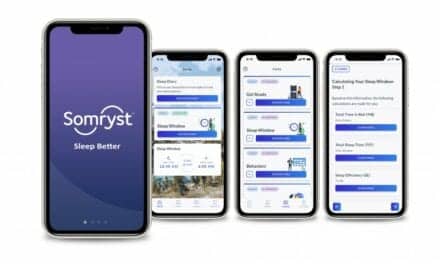An Air Force Aerospace physiology chief has noticed that many Airmen are too willing to sacrifice sleep for other things in their lives.
“No one doubts the need to breathe or eat, but sleep tends to be deprioritized,” says Lt Col Daniel Roberts, in a release. “The problem is we can accumulate a sleep debt, but we can’t bank sleep for later. Every night we don’t get enough sleep, it adds up and it’s difficult to climb out of that debt. Many people have some form of this cumulative fatigue.”
Continued lack of sleep can be detrimental to an Airman’s job performance, their ability to fight off infections, and their overall readiness and wellbeing.
“Lack of sleep weakens the immune system,” says Lt Col Dara Regn, MD, pulmonary and sleep medicine chief of the Air Force Research Laboratory’s 711th Human Performance Wing. “Lack of sleep can decrease the body’s immune defenses, increasing the chances of us getting sick. Lack of sleep can also negatively impact our body’s ability to fight off infection if we do get sick and may reduce vaccine effectiveness.”
As Roberts explains, fatigue impacts Airmen performance, and makes it harder to fix errors should they happen.
“In aviation, fatigue is a significant contributor to unrecognized error,” Roberts says. “For health care workers, this can mean errors while monitoring someone’s vitals or dispensing medication. When you are tired, it might lower your ability to focus, notice an error, or complete tasks on time.”
While there are many reasons getting enough sleep is a challenge, COVID-19 has created additional barriers.
“Stress and sleep have a bidirectional relationship, meaning stress can disrupt sleep, and in turn disrupted sleep decreases our resilience to stress,” Regn says. “The anxiety associated with COVID-19 and all the changes to our lives it causes are adversely affecting sleep. With teleworking and homeschooling, we are trying to manage stress and learn how to balance our lives in this new normal.”
As Regn explains, some habits associated with teleworking can impact our ability to sleep. For instance, more Airmen are plugged in and are increasing their screen time, especially as the balance between work life and home life become difficult to manage and keep separate. This exposure to screens can disrupt the ability to fall asleep. Another impact of telework is increased isolation, impacting stress levels and anxiety. This all impacts Airmen’s ability to get enough sleep.
Kirk Rowe, PhD, clinical neuropsychologist with the Air Force Research Laboratory’s 711th Human Performance Wing, explains that there are several things everyone can do to improve sleep, including unplugging from electronic devices, eating a healthy diet, exercising, and establishing a routine.
“If you could do one thing to help improve your sleep habits, it would be to set an alarm to go to bed and do that consistently,” says Rowe. “We set an alarm to wake up; however, getting to bed around the same time every night can be very helpful when considering a bedtime routine.”
Other strategies include avoiding caffeine at least four hours before bed, only using your bed for sleep, and engaging in other routines that can help wind down for the day. For example, engage in meditation or mindfulness techniques, or take a relaxing bath before bed.
Airmen and their families also have access to several resources, including a Veterans Affair’s smartphone application called the CBT-I, or Cognitive Behavioral Therapy for Insomnia, Coach. This application has information how to best optimize sleep. The Defense Health Agency also has a Sleep Self Assessment questionnaire and resources. Health care providers available for those with continued sleep concerns.
“Telehealth resources are available for Airmen and their families,” Regn says. “Be sure to follow up with your primary care provider if you continue to have difficulties with your sleep. Mental health and sleep medicine providers are available for virtual or in-person appointments and are also available to help our Airmen optimize their sleep.”
While COVID-19 has created additional stress and challenges impacting sleep habits, getting enough sleep is foundational to overall health and wellbeing.
“We spend a third of our life sleeping, so it clearly serves a vital function to our lives,” Rowe says. “Sleep is the foundation on which we build everything else, so it is important we excel at it.”





